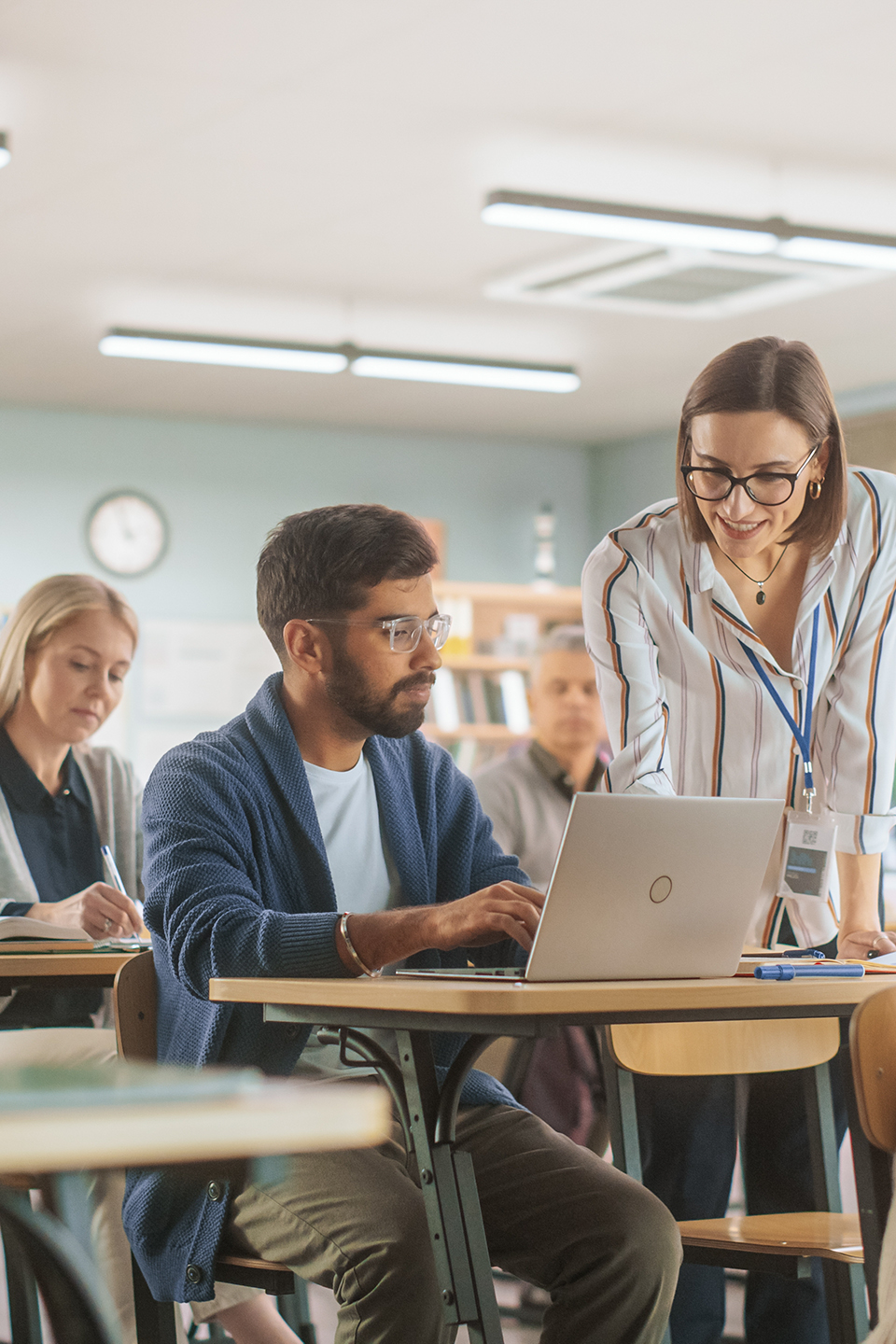NSTA District Professional Learning Packages
Transform Science Education at Scale with NSTA
We support districts in empowering educators and advancing student learning through custom strategies—including professional learning centered on sensemaking, leadership development, and the implementation of high-quality instructional materials—whether you're launching a new curriculum, supporting teachers, or scaling instruction across schools.
Professional Learning Designed for District Impact
NSTA Professional Learning Packages offer tailored support for teachers, instructional leaders, and administrators at every stage of their journey. Each experience is aligned to your district’s grade levels, focus areas, and instructional priorities. Through a combination of in-person and virtual workshops, coaching, and ongoing support, we provide practical, classroom-tested solutions that strengthen instruction and improve student learning.
Sensemaking
Strengthen educator understanding of science standards and equip them with instructional strategies that foster three-dimensional, phenomenon-driven learning in real classrooms. Our expert-led sessions translate complex standards into practical teaching approaches that engage students.
Curriculum-Based PL & HQIM Implementation
We support districts in implementing high-quality instructional materials with research-based professional learning tailored to specific curricula. Our comprehensive approach includes onboarding, unit deep-dives, teacher training, and sustainability planning to ensure lasting impact.

OpenSciEd Professional Learning
NSTA supports districts at every stage of their OpenSciEd journey—whether you're exploring curriculum options, preparing to adopt, actively implementing, or refining your practice as seasoned users.
As a certified OpenSciEd Professional Learning provider, NSTA leverages decades of experience to help districts successfully implement high-quality instructional materials.

Ongoing Support
Sustain progress and build long-term capacity with flexible support services tailored to your district’s evolving needs. These options can be bundled with professional learning packages or used individually to extend impact over time.
"NSTA has been an incredible partner. They helped us roll out OpenSciEd districtwide with training that actually stuck. Our teachers are more confident, and our classrooms are more alive with science than ever before."
Dr. Maria Chen
Science Coordinator, Denver Public Schools
Why Districts Choose NSTA
For over 80 years, NSTA has been the trusted leader in science education—combining national expertise with local insight to deliver professional learning that drives real results at scale.
35K+
Educators Served
NSTA supports a nationwide network of over 35,000 science educators and district leaders.
94%
Satisfaction Rate
District partners report high satisfaction with the relevance and quality of NSTA professional learning.
85%
Implementation
Teachers report successfully applying new practices after participating in NSTA programs.
78%
Student Engagement
Partner districts report increased student engagement following NSTA-supported implementation.
What You Can Expect with NSTA
Design Your Professional Learning Roadmap
Extend the Impact of Your Partnership
In addition to professional learning, NSTA offers conferences, publications, awards and competitions, and membership benefits that complement your district's comprehensive science education strategy.


